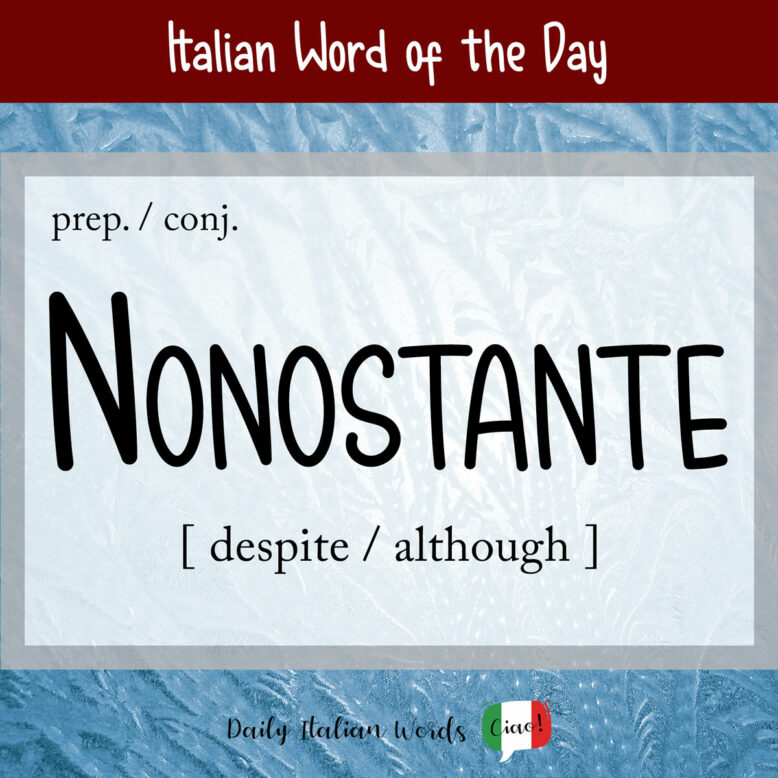The word nonostante in Italian is the combination of non (no / not) and ostante (the present participle of the verb ostare meaning to impede). It is used to express a contrast between two things and tends to be more common in writing than in speaking. While normally written as one word these days, the archaic spelling non ostante also exists.

When used as a preposition, the best English translations include despite, in spite of, or notwithstanding. In this case, it always appears in front of a noun as you can see from the following examples:
Marco è uscito, nonostante la neve.
Marco went out in spite of the snow.
Nonostante tutto, le vuole ancora bene.
Despite everything, he still loves her.
According to Treccani, nonostante usually remains invariable in front of plural nouns:
- nonostante il problema = despite the problem
- nonostante i problemi = despite the problems
If written as two words however, the verb ostante normally agrees with the noun. Note that, while interesting in the pure context of grammar, this form rarely occurs in modern Italian.
- non ostante il problema = despite the problem
- non ostanti i problemi = despite the problems

Nonostante can also function as a conjunction, in which case it is followed by che (that) and a verb in its subjunctive form. Because che is implied, many speakers omit it entirely nowadays. Some possible English translations include although, even though and even so.
Nonostante (che) si fosse allenato duramente, non riuscì a vincere la gara.
Even though he trained hard, he didn’t manage to win the race.
Nonostante (che) sia tardi, non vado a dormire.
Although it’s late, I’m not going to sleep.

Finally, when used as an adverb with the meaning of however, nonostante is preceded by the word ciò (this / that). According to Scuolissima.it, there are five ways in which it can be written, some of which are more accepted than others:
- ciò nonostante (two words, the most common spelling)
- ciònonostante (one word, also very common)
- nonostante ciò (putting ciò at the end emphasises something wrong or negative)
- ciònnonostante (an obsolete form with the double ‘n’)
- ciò non ostante (three words, an archaic form)
Ha perso tutti i suoi soldi – ciò nonostante non vuole l’aiuto della sua famiglia.
He lost all his money – however he refuses his family’s help.
Heather Broster is a graduate with honours in linguistics from the University of Western Ontario. She is an aspiring polyglot, proficient in English and Italian, as well as Japanese, Welsh, and French to varying degrees of fluency. Originally from Toronto, Heather has resided in various countries, notably Italy for a period of six years. Her primary focus lies in the fields of language acquisition, education, and bilingual instruction.


